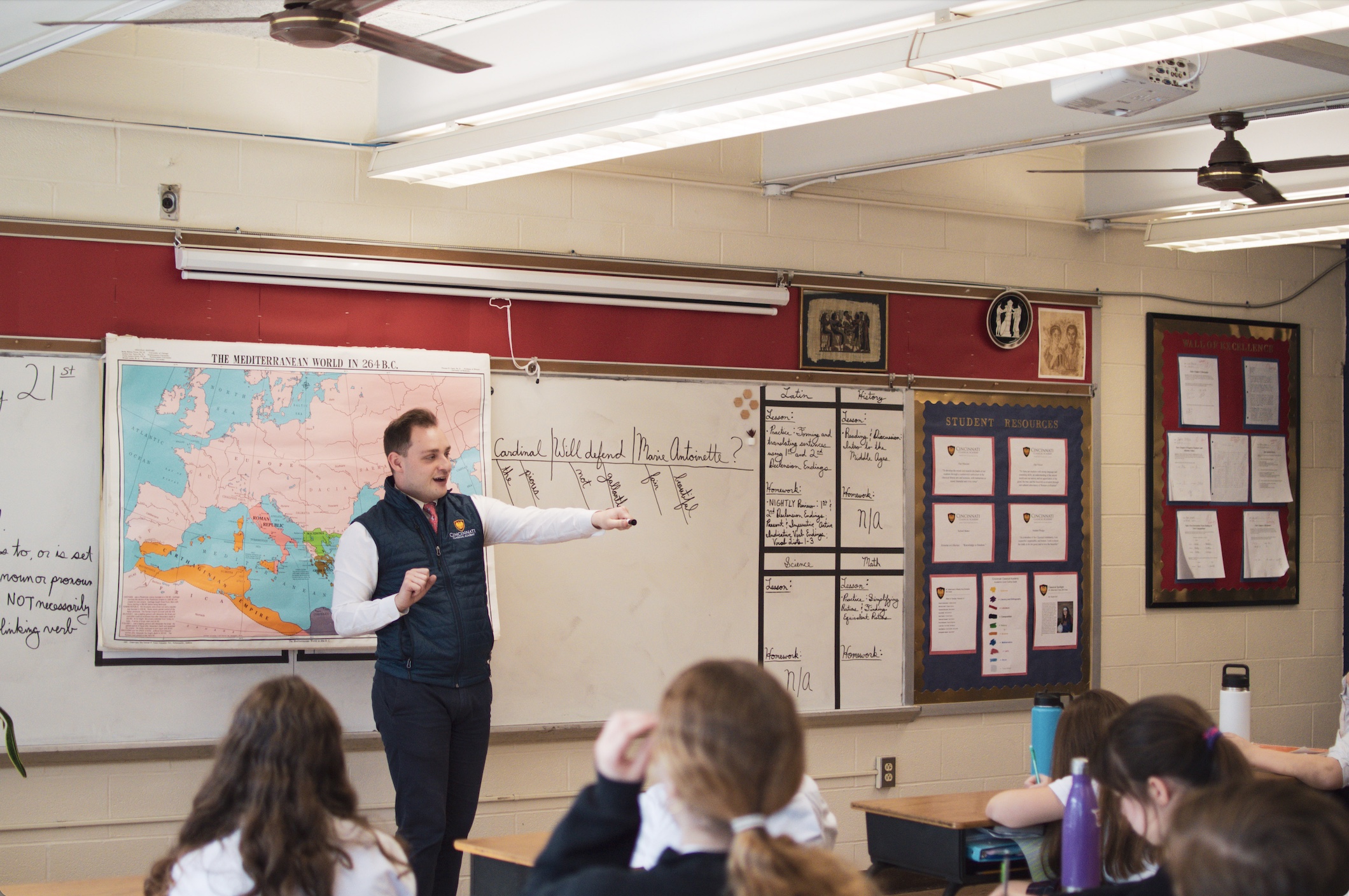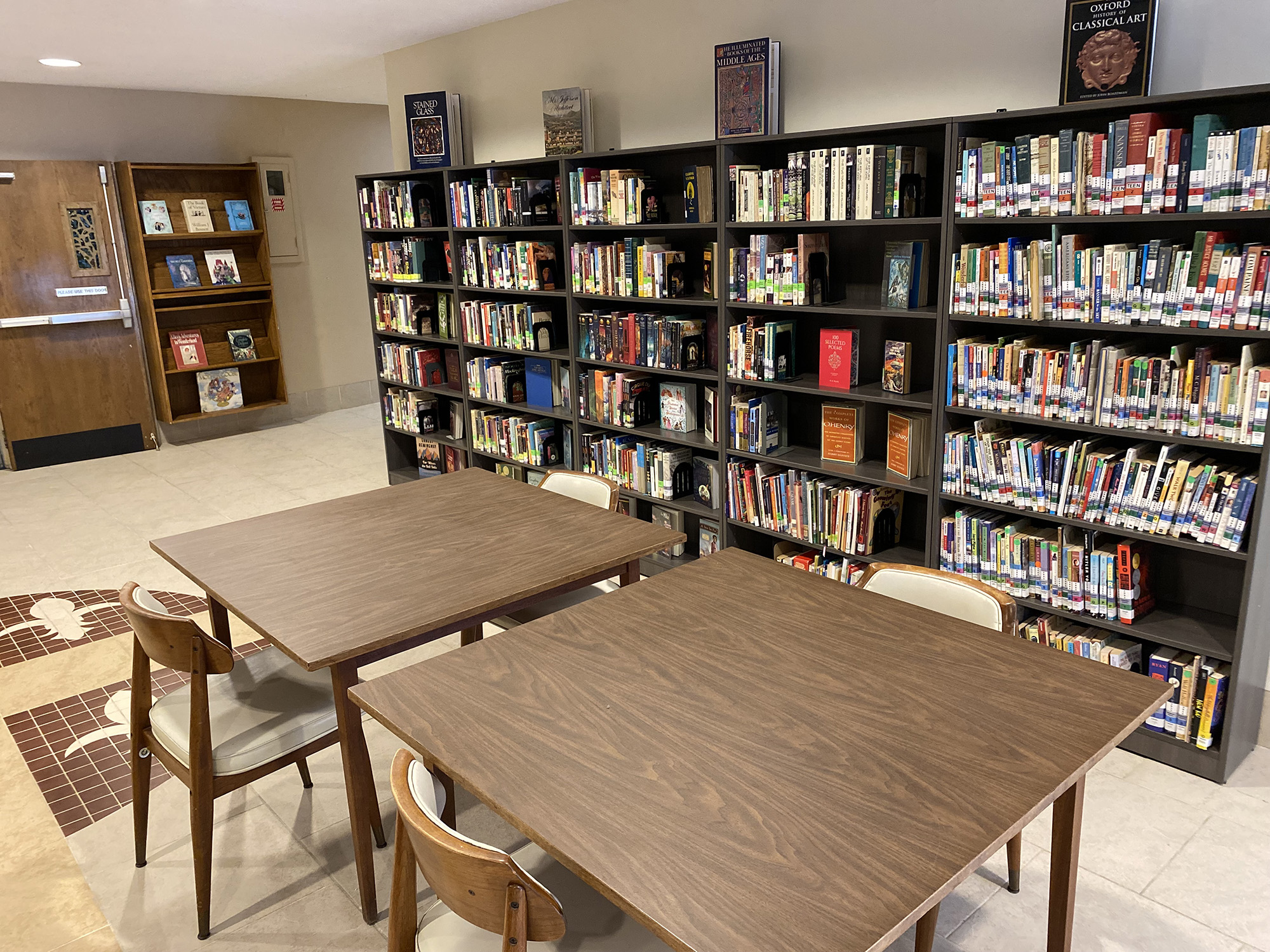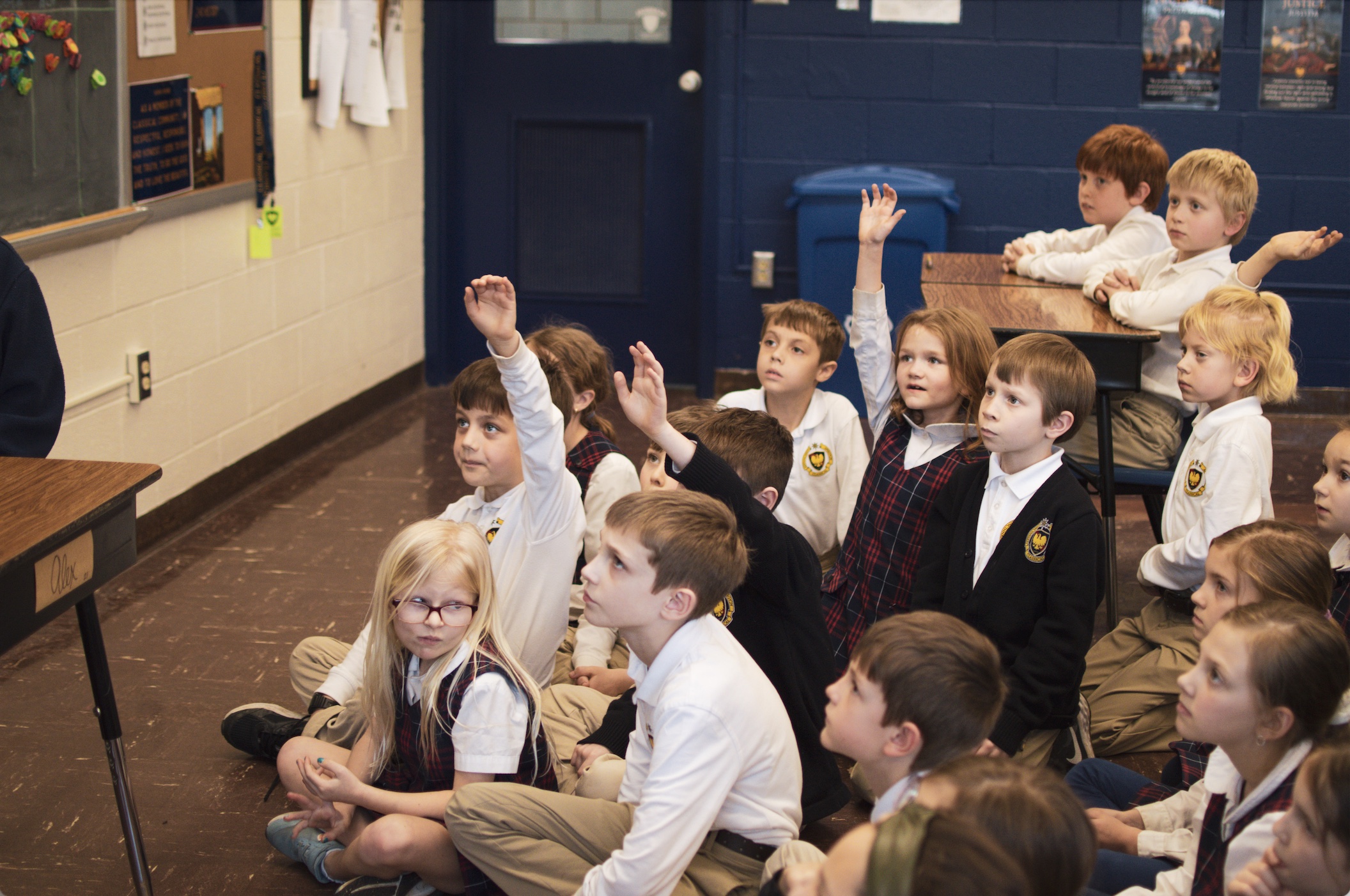Classical Education Curriculum
We are returning to the curricula, materials, and methods that have traditionally been used to educate generations of young men and women who have helped build our nation and preserve Western civilization.
Cincinnati Classical Academy is one of more than 25 tuition-free charter schools across the nation to be a part of Hillsdale College’s BCSI Initiative, an ambitious program to establish and sustain classical liberal arts education throughout the United States. Like all of the highly successful Hillsdale-affiliated schools, CLASSICAL emphasizes intellectual rigor, human virtue, moral character, and responsible citizenship.
Classical Trivia Night
Are you smarter than a fifth grader? Join us for a community-building, adults-only trivia night on Saturday, April 9, from 7-9:30 PM in the school gymnasium.
Here's how we do it:
Teacher-Led Classrooms
First, we are returning to the curricula, materials, and methods that have traditionally been used to educate generations of young men and women who have helped build our nation and preserve Western civilization. These include teacher-led classrooms, low technology, intensive phonics, and traditional mathematics instruction. Our students do the hard work of thinking about and discussing big ideas and important events. They diagram sentences. They explore the natural world through the rigorous study of science and mathematics. And our students study Latin, learn to write in cursive, and understand the founding documents and principles of our country.


Importance of Books
Second, we believe in the importance of books in a child’s education. The books in our curriculum are among the greatest works of literature ever written. They have proven to be instruments that properly form our children’s moral imaginations. That means reading and discussing the classics, from Aesop’s Fables to the Chronicles of Narnia to Hamlet and Macbeth. (And so much more!)
Developing the Whole Person
Third, we actively focus on developing the whole person—heart, mind, body, and soul. As a result, students are equipped with the tools to be self-disciplined and intellectually competent, with strong moral character and civic responsibility.
READ MORE: Why is Classical education necessary today?

Curriculum Sheets
We invite you to download our CLASSICAL Curriculum Sheets, which you will find below. This will give you a very good feel for the CLASSICAL curriculum from grades K-12. (We currently serve grades K-6 and will be adding a grade each year until K-12 are served.)
Elementary School
Middle School
K-8 Curriculum Highlights
Here at CLASSICAL we emphasize a classical education in the humanities, the sciences, and the arts using several research-based curricula/programs in the elementary and middle schools, which include:
- The Core Knowledge Sequence (Note that this is not Common Core)
- Explicit Phonics: a program based on Orton-Gillingham research and methods
- Singapore Math (a traditional approach to mathematical skill building and problem solving)
- Integrated Fine Arts and Music programs
- Reading the Classics in literature classes in grades K-12
- Classical approach to the study of science
- The study of Latin in Grades 6-9, with introduction of Latin and Greek roots in Grades 4-5
- Grammar and Composition instruction in Grades 3-8
High School Curriculum Highlights
In high school, students will receive a content-rich classical liberal arts education through a curriculum in literature, math, history, civics, the sciences, music and art that will align with and exceed state standards. Highlights include:
- Four years of history: Ancient History (Grade 9), Middle Ages through Enlightenment (Grade 10), American History (Grade 11), and Modern European History (Grade 12)
- Four years of literature: Ancient Literature (Grade 9), British Literature (Grade 10), American Literature (Grade 11), and Modern Literature (Grade 12)
- Four years of science (Biology, Chemistry, Physics, and Astronomy or AP study)
- Four years of math (Geometry, Algebra II, Pre-calculus/Trigonometry, and Calculus)
- At least three years of world language
- Core requirements in American Government, Moral Philosophy, Logic, Rhetoric, and Economics
- Electives in studio art, music, personal finance, and entrepreneur studies
K-12 Prospectus
Fill out the form below to download our full K-12 Prospectus

